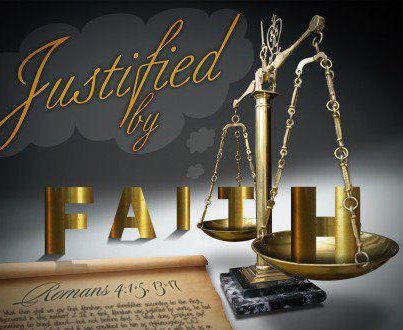 Review & Intro: The Sin Offering that was covered in Chapter 4 continues in our reading today through Chapter 5, verse 13. The Guilt Offering will begin in 5:14 and continue through Chapter 6:7. There will also be some information from Chapter 7 given in this lesson to help us better understand the Guilt Offering. The emphasis of the Guilt offering is that it required restitution and a 20% surcharge to the one offended, whether God with the holy things or another person with specific things mentioned.
Review & Intro: The Sin Offering that was covered in Chapter 4 continues in our reading today through Chapter 5, verse 13. The Guilt Offering will begin in 5:14 and continue through Chapter 6:7. There will also be some information from Chapter 7 given in this lesson to help us better understand the Guilt Offering. The emphasis of the Guilt offering is that it required restitution and a 20% surcharge to the one offended, whether God with the holy things or another person with specific things mentioned. Leviticus Chapters 5 - 6:7
Sin Offering (cont.) & Guilt Offering
1. In continuing the reasons for a sin offering, three catagories of sin are defined by God for the sons of Israel. Read Leviticus 5:1-4 and then read the summaries I have given for them below.
- It was a sin to be a witness, either by being an eye-witness or by being an ear-witness (knowing of it), if the person is silent and does not tell what he knows in testimony. (vs.1) - Sin of SILENCE
- It was a sin to touch a dead carcass of an unclean animal (vs.2) and there were different situations of human uncleanness that one was not to touch (vs.3) Whether he did not mean to (such as putting a hand under a chair and a dead mouse was there - yikes) ... or if it became known that one had touched human uncleanness. - Sin of DEFILEMENT
- It was a sin to swear thoughtlessly with the lips to do evil or to do good.(vs.4) - Sin of SWEARING
2. What was the first thing a person was to do as soon as they were made aware of their sin in any of these areas and realized they were "guilty"? vs. 5
3. What was the next step in receiving atonement and forgiveness for these sins? What animals were accepted and what was the sex of the animal to be? vs. 6
4. If the person could not afford a lamb, what was he to bring to the Lord and what would they be offered for? vs. 7 - Name 2 offerings mentioned.
5. What would the priest do to the first bird for the sin offering? vs. 8
6. What would he do with the blood of the sin offering? vs. 9 - Name 2 things
7. What would the second bird be offered up as? vs. 10
8. Once the priest made atonement in this way, what would the spiritual condition of the person who had sinned be? vs. 10
9. If the person could not afford the 2 turtledoves or 2 young pigeons for a sin offering, what was allowed for him to bring with his confession of guilt? vs. 11
10. What was he not to put on the flour and why not? vs. 11
11. What would the priest do with the handful of fine flour for the sin offering? vs. 12
Note: There is no oil or incense added and it does not say it was a sweet aroma, but a sin offering.
12. Once the priest had made atonement for him, his sin would be forgiven him. What happened with the rest of the flour that had been brought? vs. 13
Application:
13. Let's look at the Sin of Silence. Have you ever been an eye or ear witness to something and did not speak up when a public adjuration to give testimony was at hand? Do you remember what happened with Jesus when all those who could have stood beside Him in trial scattered and were not to be found when the false accusers were pounding Him with lies? And then there was the apostle Paul that said that everyone abandoned him. Comment on these verses:
- Matthew 26:30-34 -
- 2 Timothy 4:16-17 -
We are not eye-witnesses of the Lord Jesus Christ, but we are ear-witnesses, as we have heard the Gospel account and believed it. We have been commanded to share what we know, even to the ends of the earth. Do you think when we are silent with our witness of Christ we are guilty of a sin of silence?
- Luke 24:46-48 -
- Romans 10:13-17 -
14. Next, let's consider the Sin of Defilement. Because of the way the dead are cared for today, we probably won't become unclean by a dead carcuss, but Jesus told us we become defiled from things that are stored in our inward man, in our hearts. Read the verse below and see what you might be defiled by today that you need to confess before the Lord. We have also been told not to be bound with unbelievers because of the customs of defilement they participate in. Maybe this is an area you need to get right with the Lord on.
- Matthew 15:17-20 -
- 2 Corinthians 6:17-7:1 -
What are you defiled with? Have you confessed it to the Lord if need be?
15. The third sin that is addressed in Leviticus 5 is the Sin of Swearing, whether for evil or for good. To swear and to not come through is really to tell a lie as well. They are being told in Leviticus to not be thoughtless, but to weigh out the seriousness of a vow to someone. Jesus goes even farther in His teachings to tell us not to swear at all. Comment on the verses below:
- Matthew 5:33-37 -
- Romans 13:8 -
We need to be people of our word. If we say we will do something, we need to follow through and do it. If we are hindered from doing it, we need to communicate with the person and let them know why we are late on our word. Let our yes be yes and our no be no. Amen.
16. Summarize this section and post a prayer if you would like.
Let us continue in Leviticus 5 - The Guilt Offering
This concludes this section about the Sin offerings and now we move into the Guilt offerings beginning with verse 14 of chapter 5 of Leviticus:
16. The Lord continued to give Moses instructions about the offering; now the Guilt Offering. If a person was unfaithful and sinned "unintentionally" against the Lord's holy things, what animal was he to bring to the priest for a guilt offering? vs. 15
17. He was also to bring restitution according to the valuation in silver by shekels in terms of the shekel of the sanctuary.(vs.15)...He was to make restitution for what he had taken, but what else was required of him financially? vs. 16
Note: Some examples of sinning against the Lord's holy things might be failing to pay tithes, eating part of the priest's portion of an offering, taking a utensil of some type from the worship area, failing to redeem (pay money) for the firstborn that was to belong to the Lord, etc....When their conscience helped them remember or realize, they were to pay what they owed and add another 20 percent to it. This was besides the ram that they brought ... to make confession before those around ... of what they had done before slaying it and having the priest make atonement for them. It was quite a task!
18. What was the outcome for the person spiritually once the priest made atonement for them? vs. 16
19. If a person did any of things the Lord had commanded not to be done, he was guilty even if he was unaware. He would bring the ram for the guilt offering, and make restitution as need be.(vs.17,18). What does God say about man's guilt in breaking His commandments? vs. 19 -
20. Sin is what God defines as sin. The Word is clear what is sin and what is not. Too many times we allow our culture to define sin for us. Can you think of some examples of what God says is clearly sin but our culture tells us this is not so? (share if you would like)
21. Moving into Chapter 6, the Lord continues to share with Moses regarding a person who is unfaithful against the Lord by deception, robbery, or extortion from his companion.(vs.1,2) To sin against a person is also to sin against the Lord. All sin is ultimately against the Lord. What did David say in his prayer of repentance in Psalm 51? Comment on the verse below.
- Psalm 51:1-4 -
22. Back to Leviticus 6. Next, the Lord makes clear that when a person finds something, it is not for us to keep, but to try to find who it belongs to. If we do not find the person, the sin is if we "lie" about it being "ours". (vs.3,4) ... What is the way to forgiveness for these sins against a neighbor? List the steps below from vs. 5-6
23. What is the person's spiritual condition after the priest makes atonement for them? vs. 7
Application:
24. We are given 2 examples in the New Testament of a person who was willing to follow the laws of restitution to obey God and one who was not. In each case, the hearts are revealed to Jesus. Read the two passages below and comment on them:
- Story of Zacchaeus; Luke 19:1-10 -
- Rich Young Ruler; Luke 18:18-27 -
25. Sometimes it is not a monetary restitution that needs to be made, but we are to be reconciled to God and to our brother or sister in Christ. Comment on the following verse:
- Matthew 5:23-24 -
- 2 Corinthians 5:18-19 -
26. How do we see Jesus pictured in an offering of reconciliation?
- Romans 5:10-11
27. Summarize today's lesson and post a prayer if you would like.


No comments:
Post a Comment